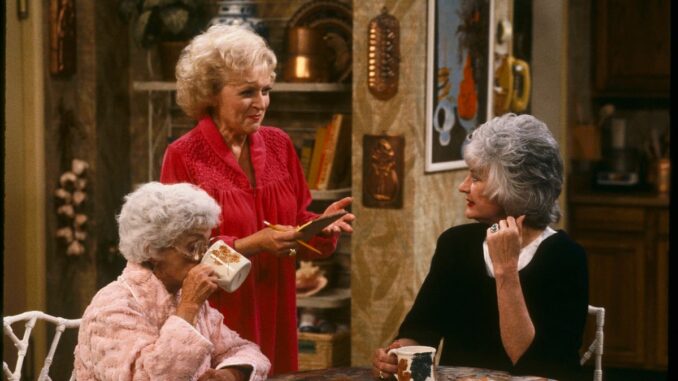
The Golden Girls is not only celebrated for its witty humor and memorable characters but also for its remarkable ability to address a wide range of social issues with both sensitivity and comedic flair. Throughout its run from 1985 to 1992, the show tackled topics such as aging, sexuality, health, and relationships, often sparking important conversations about the challenges faced by older women in society. This unique blend of humor and serious themes has contributed to the show’s lasting legacy and continues to resonate with viewers today.
Tackling Aging with Grace
One of the most prominent themes in The Golden Girls is the experience of aging. The show fearlessly confronts the realities of growing older, often highlighting the societal stereotypes and biases that older women face. For instance, in the episode “The Way We Were,” the characters reflect on their youth, grappling with feelings of nostalgia and the fear of becoming irrelevant. Their candid discussions about aging not only provide comedic moments but also offer poignant reflections on self-worth and identity.
In another episode, “The Golden Girls: The One with the Baby,” the women’s varied reactions to the prospect of becoming grandmothers showcase the complexities of aging. While some embrace the idea, others wrestle with the implications it brings. These conversations help normalize discussions about aging, allowing viewers to see the humor and dignity in the process.
Conversations About Sexuality
The show also broke ground by openly discussing sexuality and romantic relationships among older women. Characters like Blanche, who is unapologetically flirtatious, bring humor to the exploration of desire and intimacy in later life. In the episode “Blanche’s First Date,” Blanche’s excitement about a potential romantic encounter is met with both humor and supportive camaraderie from her friends. This portrayal challenges stereotypes about older women and sexuality, emphasizing that desire and love can flourish at any age.
The Golden Girls also addresses the issues of sexual orientation and acceptance. In the episode “Isn’t It Romantic?”, the characters support a gay friend during his coming-out process, demonstrating understanding and compassion. This progressive approach was groundbreaking for its time, inviting conversations about LGBTQ+ rights and representation.
Health and Well-Being
Health issues are another significant theme tackled with humor and grace. In the episode “The Flu,” the women deal with the challenges of illness while maintaining their trademark wit. Their comedic banter during a health crisis serves to lighten the mood, reminding viewers that laughter can be a powerful coping mechanism. The show addresses serious health concerns, including heart disease, osteoporosis, and even the impact of caregiving on mental health, all while keeping the tone relatable and engaging.
In “Sick and Tired,” Dorothy’s struggle with fatigue and the eventual diagnosis of chronic fatigue syndrome highlights the importance of acknowledging such issues. The support from her friends demonstrates the value of community and understanding when facing health challenges—an important message for audiences.
Conclusion
The Golden Girls masterfully blends humor with meaningful commentary on social issues, making it a groundbreaking series that continues to resonate with audiences decades after its original airing. By addressing aging, sexuality, health, and relationships, the show encourages important conversations about the experiences of older women in society. Its ability to tackle serious themes with laughter and sensitivity not only entertains but also empowers viewers to confront these issues in their own lives. Through the lens of humor, The Golden Girls remains a timeless exploration of friendship, resilience, and the complexities of life.
